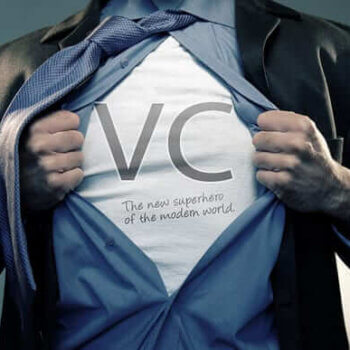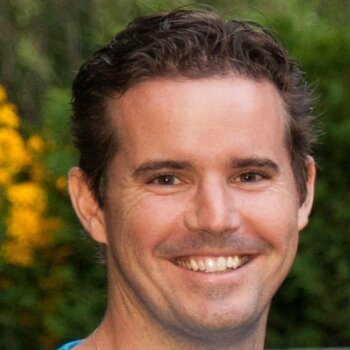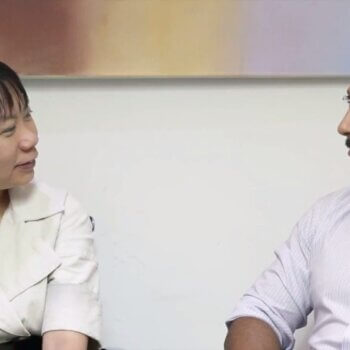Hindol Sengupta is the author of The Liberals (HarperCollins), a book which has been described by British economist and Labour peer Lord Meghnad Desai as the autobiography of India’s economic liberalisation. India’s biggest business magazine labeled it “compelling and refreshingly honest.” Hindol is the author of two other books on the business of luxury in India, one of which, Ramp Up (Pearson), was described as the Thomas Friedmanesque take on the world of luxury by The Outlook magazine, one of the two biggest news magazines in India.
Agaisnt this impressive backdrop, Hindol is also the founder of the Whypoll Trust, India’s only open government platform which created the country’s first women’s safety mobile app and he was voted by the global ideas site IdeaMensch in their 2011 list of 33 Global Entrepreneurs Who Make The World A Better Place.
He is founder of the India ArcLight festival of arts and the founder of the Paperweight publishing house of fine stationary and the culture curate foundation. He is in the process of writing his new book Mango People on enterprise and democracy in India. He is Senior Editor for Fortune in India and was the youngest ever host of a bylined news TV show in India with Talk Back on Bloomberg TV between 2009 and 2011. He has a Master’s Degree in Mass Communication from the Mass Communication Research Centre, Jamia Millia Islamia and a Bachelor’s Degree (Hons) in Journalism from Delhi University.
Hindol is here with the Asian Entrepreneur today to tell us about Whypoll Trust and some of his views on entrepreneurship.
What exactly is Whypoll Trust and why does it matter?
Whypoll, India’s only open government institution, is a not-for-profit trust, it is dedicated to revitalizing government data and governance using sophisticated design and technological interventions. Whypoll’s work has been reported in the New York Times, Washington Post, Chicago Tribune, DW, AFP, AP, BBC, Voice of America, Al Jazeera and every Indian news organisation from The Times of India to Indian Express to Zee TV. Whypoll has worked closely with the U.N. Millennium Campaign over three years and also hosted the first ever anywhere in the world Millennium Campaign Lectures which saw 11 top speakers across 2 days including 5 Members of Parliament, 1 Nobel Laureate, the then Solicitor General of India and 1 lauded billionaire entrepreneur. Whypoll also worked to build India’s first women safety mobile app and the first ever unsafe mapping of Delhi. Whypoll is now converting India’s biggest governance document, the 12th Five Year Plan into easy to understand designs and graphics and also breaking up a more than 1,000 page policy document into 1,000 tweets.
How did Whypoll come about?
Whypoll was created by two journalists. Both Shweta Punj, who is Associate Editor at the Business Today magazine, and I, who work as Senior Editor for the Fortune magazine in India, felt the need to go beyond our journalism and create deeper, more meaningful connections between the people and politics. One of the biggest problems, as we saw it, was the deep and increasing disconnect between governance and citizens. The citizens were checking out of the governance process and politics. The rich were, and are, building cocoons, islands of wealth that sheltered them from the larger problems of the nation – from poor infrastructure to terrible quality of health, education and agriculture. By doing this, by building self financed expensive private islands of prosperity, first the wealthy and then the middle class, was, and is, taking itself out from a day to day interface with governance. As they access no public services, they have no stake in governance or the people that govern. Our attempt has been to alter this state of affairs. We have, from the very beginning, wanted to create public platforms, on ground and online, that enable people to better access information, ask questions, use technology better and smarter – all to make a more relevant and informed citizenry that questions those who govern at every level.
What was the response and ofcourse, the political response to Whypoll initially?
It has been enthusiastic at every level. In our very first major event, several prominent members of Parliament participated. Also we have found consistent support within the United Nations machinery. Our campaigns and surveys have seen responses from more than 100,000 people. However, it would be misleading to suggest that this necessarily means that there is very rapid growth of public-governance interfaces. This is a slow process since in India asking questions and holding politicians accountable at a day to day basis, what we call experienced democracy is largely absent. Does that mean India does not have a functioning democracy? No, not at all. India has a very vibrant, deeply embedded and functioning democracy. It has what we call a measured democracy but not an experienced democracy. So once in five years, with regular, clean, fair and strict polls, India’s has a smoothly functioning democracy but the citizen does not necessarily experience the fruits of that democracy at a day to day level. And that process, the use of technology for such interaction, is a slow and gradual process. It will not be easy task and the journey has just begun. This is about carving a new path of peaceful revolution in India.
Was there a process to create that kind of response?
Well, we organised events, we sent out thousands of emails, we spoke at various colleges and schools and other platforms, we did media interviews, we have been prolific on social media and have run many campaigns. It’s a big ask and we are a very large country, so our work has just begun.
So today is there a main means of marketing Whypoll Trust, if so what is it?
I think word of mouth and public events work the best for us. Of course, there is no denying the power of social media and we try to use all of these the best we can and with the resources that we have available. We are at the moment a very small organisation and we try to keep overheads really low and work the best we can with few resources. We are looking to raise money and do more projects to raise money so that we can do much more.
Did you encounter any major challenges when you were starting Whypoll Trust?
There were two primary challenges. One is inhibition of the public in a country like ours which is not accustomed to talking back to the powerful. And that’s a very big inhibition. It’s increasingly disappearing but we are a 1.5 billion strong country, so changes comes slowly. The second is more basic and that is money. The kind of work that we do takes a lot of resources since it is all about scale and technology deployed at any scale always costs money and then outreach for that technology and holding public platforms for debate, all costs money. So we keep seeking committed long term partners in our work. However we were able to tackle it by constantly reaching out to people and talking to them and explaining to them the need for greater democracy and how it could change their lives.
Would you say that its hard to reach out to the Indian citizens initially and create the sort of awareness you’ve mentioned?
It was particularly difficult since it is such a diverse country. There are 28 states, 1.5 billion people, many official languages, so to get real scale in India is tough. The good thing is democracy is deeply embedded in the psyche of the country so people understand why democracy is critical. Also there is a deep anger against the mistakes and corruption of the political system, that helps in connecting people.
So are there any other platforms similar to Whypoll in India, at the moment?
At the moment, Whypoll is India’s only open government platform. But there is some work in technology that is being done in various areas – for instance we love the ipaidabribe.com initiative.
Walk us through managing Whypoll Trust, how is it like?
Basically it involves working 24/7, 365. We are always working on the site. There is never a moment when someone in the Whypoll team is not working on some project, so interacting on some aspect of social media, crunching some data, getting some perspective in place. We work all the time and it is relentless.
Where do you see Whypoll Trust in the next 10 to 20 years?
We will basically be building an entire ecosystem of citizen technology to bring people closer to the governance that they receive. We hope our efforts will bridge some of the gap between the 1% and 99%. The 1% will not want it but we, the 99%, have the numbers on our side and that is the most important thing in a democracy. We want to do in governance tech what Apple did in entertainment tech. We want to create systems and technologies that have democracy and governance stronger, better and makes governments more and more accountable. We hope to create systems that will be used and emulated around the world. We are the country of Mahatma Gandhi, so where better to pioneer the use of non violent protest means, ie social technology? Gandhi would have loved the Internet and would have been a vigorous use of Twitter!
Tell us some interesting insights you’ve gained from working on Whypoll Trust?
There are quite a few things. I’ll attempt to break it down. Everyone talks about democracy but very few people actually believe in it. Everyone says they want to do something different with their lives, they want to contribute, they are tired of a meaningless existence. But actually most people are happy to get a salary and have weekends to get drunk and shop. However, there are many, many very critically engaged people, but you need to find time to find them and engage with them in your journey. That is a magical process. Not everyone will ‘likes’ and ‘retweets’ believes in the cause. We are all inherently selfish superficially but inherently good at the core. Most men have patriarchy so deeply embedded in them that they refuse to accept that they are patriarchal. Technology is not a magic wand. It does not solve our problems. Our deepest problems can only we solved by our mind and effort. This is especially true about democracy.
Hindol, what is the goal that you are working towards?
I want to work towards bringing about the kind of democracy that allows every person to not only aspire to and achieve their true potential but also creates the environment where every person can discover what their true potential really is. Often people don’t even know what they are capable of.
What words of advice for self-starters out there?
That they shall fail. Often. Before they succeed. Or they might never succeed. But still, they must try. And try again. Stop whining, shut up and get to work. The only way to do something is to do it. Not talk about it.
Connect with Hindol and WhyPoll Trust today:
Facebook: https://www.facebook.com/whypoll
Email: [email protected]
Website: https://www.asianentrepreneur.org/#!alvin-anthons/c1gr8
Twitter: http://twitter.com/whypoll

































